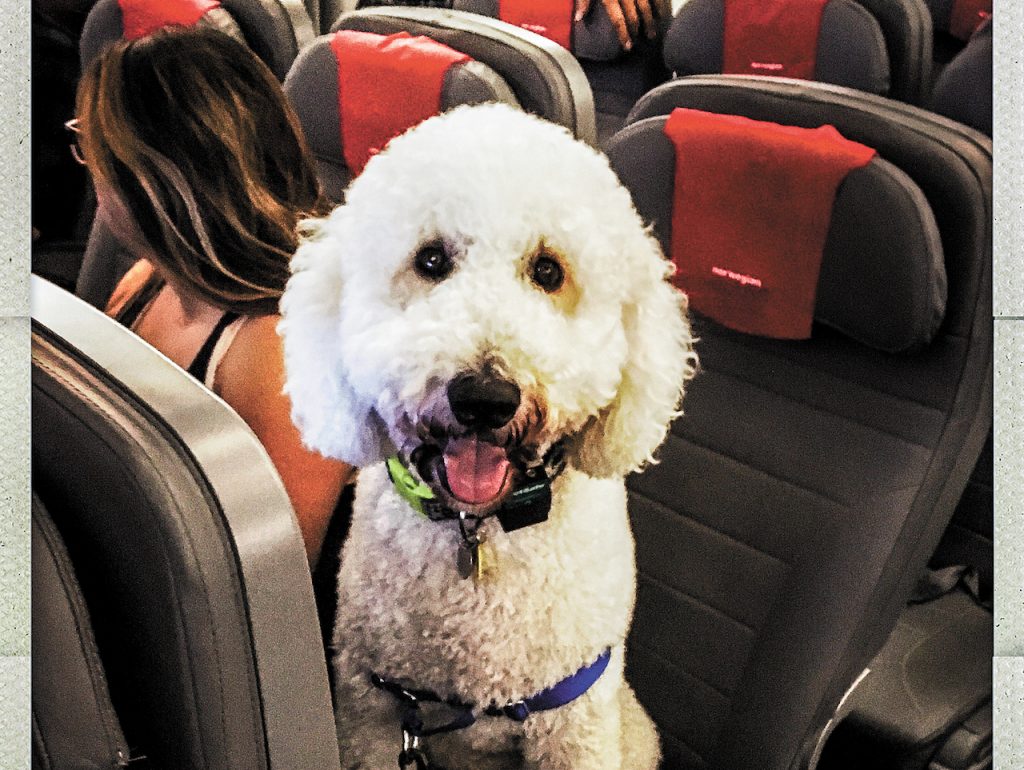Travelers with emotional support animals (ESA) might be in for a hard time with a new rule implemented for airlines this past Wednesday.
On Jan. 22, 2020, the Department of Transportation (DOT) announced that from now on airline passengers will only be allowed to take dogs as emotional support animals. The DOT made this decision due to passengers complaining about the animals people would bring onto the plane, as well as some passengers trying to bring animals on board that were not actually for emotional support.
Although it is clear more regulations are necessary, this step ultimately creates undue obstacles for those who need an ESA.
Some people — especially flight attendants. — who have heard this news are happy to know they won’t have to deal with unusual animals on flights anymore. Sara Nelson, the president of the Association of Flight Attendants, was very happy knowing that flight attendants will now be safer. Nelson, in regard to the news, issued the following statement:
“Passengers claiming pets as emotional support animals has threatened the safety and health of passengers and crews in recent years while this practice skyrocketed,” Nelson stated. “Untrained pets should never roam free in the aircraft cabin. Flight attendants have been hurt and safety has been compromised by untrained animals loose in the cabin.”
There are other people, however, who have noticed some problems in this decision that the DOT has not considered. For example, it is possible that a person in need of an ESA is allergic to dogs, and thus will not be able to take a dog with them for travel. With 10-20% of the world’s population allergic to dogs and cats, this is a large enough percentage that the DOT consider exceptions.
Additionally, the new rule may also frustrate people by not allowing them to take the ESA they care about. According to the National Service Animal Registry, any domesticated animal may be registered as an ESA, which allows people to get any animal, like a bird or a rabbit, or even a pig, approved for emotional support. Forcing people to take only dogs as their ESAs could create more problems in the effort to solve current ones.
While the DOT may have the right idea in wanting to make their passengers safer and to ensure that no one is sneaking animals on board that are not intended for emotional support, the airlines need to iron out some of the wrinkles that people have taken note of since its implementation. They need to make sure this new rule will work out for everyone, not just the passengers and flight attendants frustrated by the ESAs.
For example, the DOT should consider making the guidelines and background check of ESAs more thorough, going through paperwork and making sure the animal has proper training for when it is in a public setting. If the animal can behave in the company of several dozen people in a claustrophobic environment (like an airplane), then the animal should be allowed to board the plane as long as it has proven that it can behave itself properly. If not, then the animal should be rejected, as it could be an annoyance or even a harm to the airline workers or the fellow passengers.
Megan Peabody, a passenger who takes a pig named Hamlet with her on flights for emotional support, has also voiced her concerns about untrained animals on flights. Even though some people find it odd for her to bring a pig on board, she says that Hamlet behaves himself well. In an interview with CNN, she shared her thoughts on the matter.
“It creates a lot of skepticism, traveling with a pig,” she stated. “However, Hamlet has proven to be nothing but well behaved and obedient when flying.”
This new rule the DOT set in motion has unintentionally discriminated against people who have ESA’s that are not dogs. If the DOT and airlines really want to make traveling by air a safer and better experience for everyone, then they need to be more through in their background checks of ESA’s. Because if they don’t, then it’s going to make traveling very difficult for people who need ESA’s for travel, even if their animal of choice for traveling might be odd.
Notheis is an opinion writer. Follow him on Twitter.
